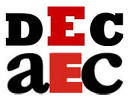DEC Mentoring Program
We welcome all DEC members to register their interest in the Mentoring Program, either as a mentor or as a mentee/protégé. The new DEC Mentoring Program is designed to promote professional mentoring relationships with individuals from different organizations, institutions, and/or countries. While many graduate students or junior faculty often have the benefit of working with more advanced scholars within their institutions, many do not have such opportunities with others in academic, professional, or other research environments nor in areas that they wish to develop that their mentors are not able to provide to them.
Mentees / Protégés
Mentees can be any DEC members (remember student memberships are $10) who would be interested in developing a mentoring relationship with another DEC member in order to enhance their skills in experimental research. Although many mentees may be very early career scholars, more experienced scholars who are interested in entering a mentoring relationship in order to develop new skills are also welcomed.
To be involved in the mentoring program, please complete one of the following forms (or both, if desired) which will be directed to the DEC mentoring sub-committee to match mentors and mentees and put them in e-contact with one another. For participants attending the ASC Conference in Atlanta in November, the DEC will be hosting a special event to kick-off the mentoring program and allow mentors and mentees to meet. Invitations are based on a limited number of parties, so please sign up as soon as possible so we can invite you to this event.
Examples of those who may want a mentor (or an additional mentor):
- You are a graduate student examining a specific aspect of corrections, and your academic institution has limited capacity in that area, so you seek out the support of a mentor from a different institution with greater specialization.
- You are a graduate student working in a particular area of criminal justice, and you want to learn about conducting experiments. However, your mentor or faculty advisor does not typically conduct experimental research, and you therefore seek out a DEC mentor who can help you get started or, if possible, include you in a project.
- You are a researcher or consultant at a non-academic institution, and while your employer may or may not have others that use experimental methods or analysis, you feel a desire or need to learn more to carry out your work.
- You are a junior faculty member or graduate student that needs more experience in conducting experimental studies, and while you understand the methods, assumptions, and/or analysis, you want to get exposure to conducting experiments in the field with those who have better contacts and/or more experience in doing so.
- You are a U.S. junior faculty member or graduate student with an interest in some specialty area in which few experimental studies have been done in the U.S., so you would like to connect with a mentor from another country who has that area of expertise.
You do not have a meta-analysis or systematic review scholar at your institution; nevertheless, you want to learn more about conducting meta-analysis and can’t afford a pricey workshop. Finding a DEC mentor with this skill/capacity may help you develop your skills and expertise in this methodology.
To register your interest in finding a mentor click here.
Mentors
Mentors can be any DEC members who would be willing to serve as a mentor to any junior or peer in order to assist the mentee/protégé in developing their skills in experimental research. Although most mentors will be advanced scholars, there may be cases where the level of scholarship is irrelevant, e.g., perhaps you are a junior scholar with specialized statistical skills that you can provide to others with limited current statistical knowledge. We welcome mentors from both academic and non-academic settings and are very interested in engaging mentors outside academia who don’t currently supervise graduate students or junior scholars, such as those from think-tanks, research institutions, consulting firms, and federal or state government, who have field-based knowledge or experience in experimental studies or who have hosted experimenters in their agencies. Also, scholars who can provide mentoring long distance (via skype or similar), especially internationally, would be very much welcomed to sign up. The only restrictions are that you must be an ASC and DEC member at the time you begin mentoring someone member (if you are not, please sign up for the upcoming year), and that you agree to provide mentoring remotely (email, phone, skype) and/or only in a professional context/setting. Finally, you may not charge a fee for your services.
To volunteer as a mentor, please complete the form below. A DEC subcommittee will provide the name or names of possible matches, and you and/or the mentee can make the contact with each other. However, you can choose not to move forward if you don’t feel it would be a good match for you. For participants who sign up prior to the ASC Conference in Atlanta in November, the DEC will be hosting a special event to kick-off the mentoring program and allow mentors and mentees to meet. Invitations are based on a limited number of parties, so please contact us immediately.
To register your interest in becoming a mentor click here.
Can’t participate as a mentor or mentee? Consider supporting the DEC through a financial donation. Learn more.
